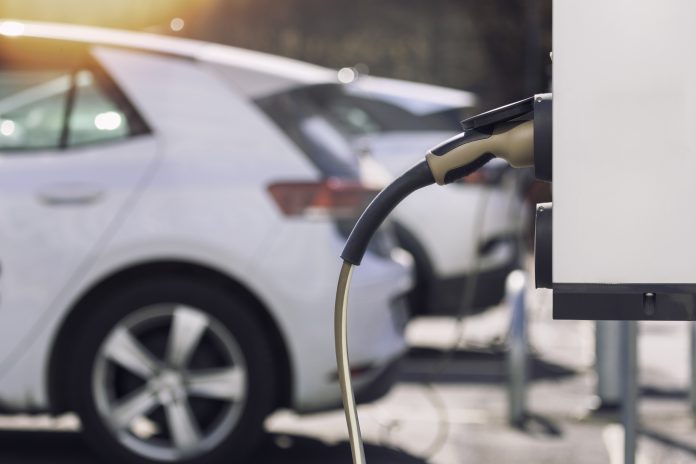Perran Moon, Chief Marketing Officer at Believ, turns the spotlight on electric vehicles, which are critical to cleaner air, reducing carbon emissions and achieving net zero
World EV Day recently highlighted how electric vehicles (EVs) are critical to cleaner air, reducing carbon emissions and achieving net zero. Yet over the past few weeks the Government has decided to extended the 2030 deadline for ending sales of petrol and diesel vehicles to 2035.
Apparently, the case for doing so is supported by the glacially slow rollout of public access charging infrastructure, with just 12% of the targeted 300,000 EV chargers installed so far.
At Believ, we are committed to a just transition that significantly reduces carbon emissions and our reliance on fossil fuels as fast as possible. We need to do this now, not delay anymore and crucially, we need to do it together: charge point operators, businesses, local authorities, and Government.
EVs: Funding the future
To achieve the 2035 deadline and ensure the switch to an electric future is one where no one is left behind, we must solve some of the most pressing issues local authorities face, such as the lack of resources and the slow release of funding from Government.
local EV charging network is available to local authorities through large-scale grants such as the Local Electric Vehicle Infrastructure (LEVI) fund. However, this funding has suffered multiple delays and has proven difficult for local authorities to access; currently, the process from application to decision is taking far too long. It means local authorities are waiting or wasting precious time wading through red tape when they could put charge points in the ground.
One way to bypass these lengthy delays is to avoid public funding altogether. Charge point operators, like Believ, offer a fully funded solution, helping local authorities plan and install a charging network at zero cost to the taxpayer.
Such a process also potentially means that public funds are not wasted in areas where the private sector is happy and willing to pick up the tab for public access EV charging infrastructure, rather than the taxpayer. Faster, cheaper and many times more efficient.
Building an accessible EV network
Once funding is agreed, the process of identifying the most appropriate sites begins. Part of that decision-making process ensures charge points are accessible to as many users as possible.
So, how can local authorities build a socially equitable EV charging network for their local community? The first step is to identify, at the planning stage, which areas most need charge points. Loughborough University and Believ have collaborated and created a heat map to pinpoint precisely where charge points are required for today and tomorrow, based on some highly sophisticated demographic modelling. The map helps local authorities target their funding and plan accordingly.
Local authorities also need to consider how they can work with local businesses to provide charge points at council car parks, leisure centres and retail outlets, which together support the needs of drivers visiting those locations. Believ works with local councils and businesses to plan and build a local network where drivers can confidently reach their final destination before re-charging.
EVs for everyone
Building the infrastructure is, however, only part of the solution. Consumers and businesses alike must be able to afford the switch to EVs. Presently, those who use public access charging, whether for personal use or work, must pay 20% VAT, when off-street private domestic charging is only 5% VAT. It is unjust that those without access to a private driveway or home charging facilities must pay an additional 15% VAT to keep their EV on the road.
Only the Government can level down those tax laws, and they may be wise to do so. If all EV charging were subject to the same 5% tax rate, people from socially deprived areas and small businesses dependent on their cars and vans to make deliveries would feel driving an EV was more affordable and so be more inclined to switch away from petrol and diesel.
To encourage this, Believ is working with ChargeUK, the collective voice and group for charge point operators in the UK, to lobby for a flat 5% VAT rate so those using on-street charging are not paying the price for not having a driveway.
EV vehicles will also need to become more affordable. They are not, and the second-hand market for EVs is still in its relative infancy. Electric vehicles remain a luxury for those who can afford them. More incentives are needed.
In London, with the expansion of ULEZ, the Local Government has introduced a scrappage scheme for non-clean-air- complaint vehicles: a £2,000 grant for a car, £21,000 for small businesses replacing three vans and £27,000 for charities scrapping three minivans.
A national scrappage scheme, along similar lines as the very successful scheme launched in 2008, whereby private car companies match-funded Government support, could see the rapid removal of the most polluting vehicles from UK roads, replaced by cleaner, greener EVs, with all the resultant benefits of reductions in CO2 emissions and improved air quality.
Electric vehicles: Believ in the way forward
But the most significant challenge currently faced is the speed at which local authorities get charge points in the ground. And this is where Believ can help.
Our fully-funded proposition, full stock of all speeds of chargers, and capacity to deliver at scale and pace is the solution local authorities have been asking for.
We can take the burden of planning, installation and maintenance away from local authorities, so their time is better spent on other transport issues affecting their communities. And with financial backing from Liberty Global, the parent company of our deployment partner Virgin Media O2), and Zouk Capital (administrators of HMRC’s Charging Infrastructure Investment Fund), we are ideally placed to install charge points at scale and pace throughout the UK.
Our approach is one of considered collaboration, carefully balancing the needs and nuances of residents, local businesses, and local authorities. With this holistic approach, we can help you deliver cleaner air for all.

This work is licensed under Creative Commons Attribution-NonCommercial-NoDerivatives 4.0 International.












